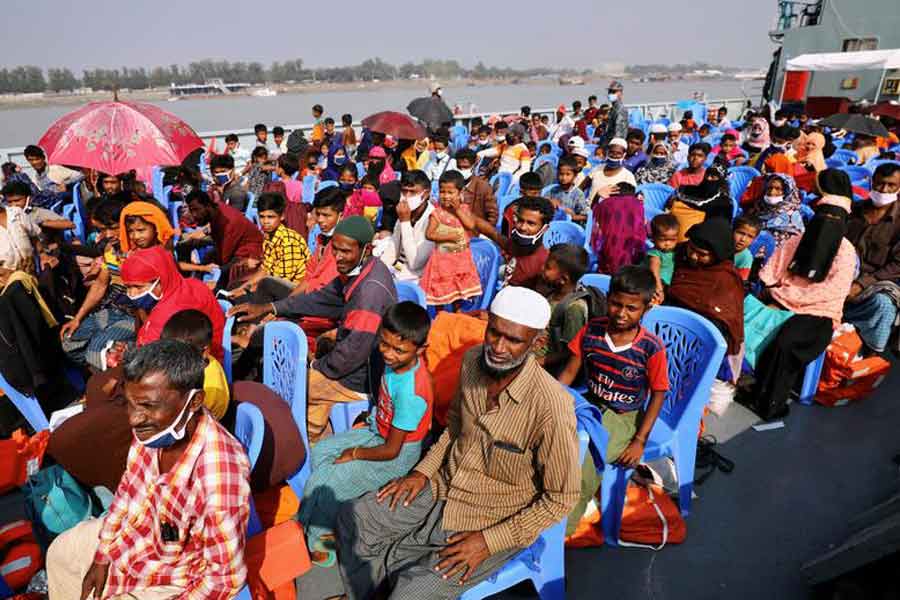
Published :
Updated :

Bangladesh has no mechanism to have reports or documents on expenditure by the UN agencies concerned as humanitarian aid for Rohingya refugees.
This is creating a big problem for the government as well as for the overall Rohingya crisis.
Refugee Relief and Repatriation (RRR) Commissioner Mohammed Mizanur Rahman said this at the launch of 'The State of the Humanitarian System Report-2022: Bangladesh Perspective' at a city hotel on Saturday.
COAST Foundation with support from ANLAP, a London-based network of humanitarian agencies, hosted the event.
Mr Rahman said the RRC did not get any document of the UN agencies over their outlay in the Rohingya crisis response.
As a sovereign country, Bangladesh should have such documents, and this is very essential for government agencies working to combat the crisis, he added.
Rohingya crisis has emerged as a most critical issue for the country, especially for Cox's Bazar inhabitants who have to bear the burden of an additional 1.0-million people, he said.
Groundwater is depleting alarmingly, the environment of the coastal green region is turning pale, employment of local squeezes thus creating a great socio-economic challenge for the country.
Responding to the RRRC commissioner, UN resident coordinator in Bangladesh Gwyn Lewis at the programme said the agencies have joint response plan (GRP), which they share with the government.
In reply, Mr Rahman said GRP is a plan or projection for work and it is not a document of expenditure.
Asked, Mr Rahman told the FE that the UN agencies just share the GRP with foreign ministry. Government organisations have no knowledge of their implementation process or expenditure.
"I also sought information on the matter from the Economic Relations Division (ERD) but it also seemed unaware," he said.
Ms Lewis further emphasised the impact of limited funding on supporting the Rohingya and the necessity of doing better with less funds.
British High Commission councillor Simon Lever stressed an open discussion on localisation efforts and that right support reaches right people at the right time.
IoM Bangladesh deputy chief mission Nusrat Gazali highlighted the importance of consolidating efforts of organisations for effective humanitarian responses.
Department of Disaster Management director general Md Mizanur Rahman emphasised Bangladesh's progress in disaster management, highlighting the significant reduction in cyclone-related deaths.
He stressed the need to strengthen capabilities in addressing earthquakes and landslides.
COAST Foundation executive director Rezaul Karim Chowdhury moderated the programme while ANLAP representative Jennifer Doherty presented a keynote.
The keynote highlighted the global escalation of conflicts, disasters and displacement, further exacerbated by the Covid-19 pandemic.
Forced displacement doubled to 89.3 million in 2021, with 161-million people facing acute food insecurity, according to the report.
The need for humanitarian will surge to $339 million in 2023 from $255 million in 2021, it said.
Concentration of funding and limited support for UN agencies revealed vulnerabilities in the humanitarian system, according to the keynoter.
tonmoy.wardad@gmail.com


 For all latest news, follow The Financial Express Google News channel.
For all latest news, follow The Financial Express Google News channel.